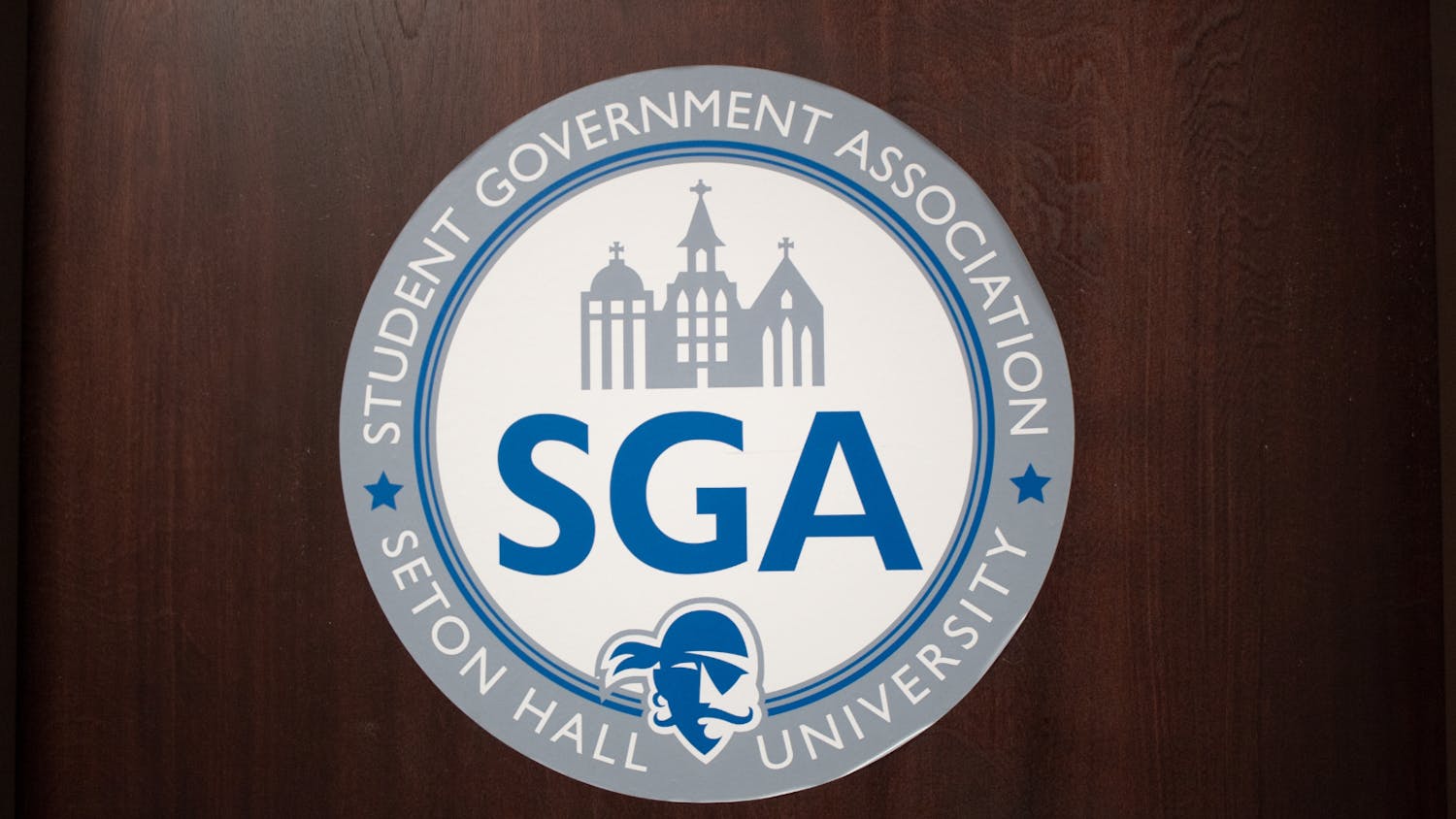Following the Iowa Caucus and the New Hampshire primary, the intensity for the democratic candidacy has heightened and the field of contenders has narrowed.

Entrepreneur Andrew Yang, Colorado senator Michael Bennet and Massachusetts governor Deval Patrick dropped out of the race following their poor performances in the New Hampshire primary.
According to Politico, former South Bend, Indiana Mayor Pete Buttigieg was declared leader of the state delegate equivalent over Vermont senator Bernie Sanders. After the Iowa Democratic Party recanvassed the initial results amid mass skepticism surrounding the caucus’ reporting methods, Buttigieg leads Sanders by .08 state delegate equivalents, as reported by the state party.
In the New Hampshire Primary, Sanders finished on top with 25.7% of the vote. Buttigieg came in second with 24.4% and Klobuchar ended in third with 19.8%. Warren and Biden finished in fourth and fifth place, respectively.
As the race intensifies, members of the Seton Hall community have expressed their thoughts on the upcoming elections.
With Buttigieg’s rise in these early contests, Dr. Patrick Fisher, professor of political science, said he has been surprised by this surge. Fisher said his appeal in part is due to his youthfulness, his new energy and that he does not belong to the D.C. establishment. Additionally, Fisher said Buttigieg is apt at retail politics in which he speaks to relatively small groups of people, which was critical for the Iowa Caucus and New Hampshire Primary.
“He is also helped by the fact that his relatively centrist politics makes him seem electable to many Democratic voters,” Fisher said. “So, in a nutshell, he is seen as young, about 40 years younger than Sanders and Biden, new and electable.”
With Sanders as the current front runner, Fisher said although he has a solid base and a number of avid supporters, his ability to expand his base will be key to acquiring the nomination.
“It is possible that Sanders has a high floor, which allows him to win a state in a multi-candidate race with 27% of the vote, but might have a low ceiling, that means that he may have a difficult time getting much beyond that,” Fisher said.
Fisher explained that political scientists have consistently found support for “the median voter theorem,” which says that the candidate closest to the ideological center of the overall electorate is best positioned to win in the general election.
“Based on the median voter theorem, the candidate best positioned to defeat Trump would be Buttigieg, Klobuchar, Biden and Bloomberg,” Fisher said. “And the candidate with the worst chance, by a long margin, would be Bernie Sanders.”
Fisher added that while it is challenging for a candidate to defeat an incumbent president, Trump’s unpopularity places him at risk to lose in the general election.
Dr. Matthew Hale, Associate Professor of political science said that Buttigieg’s surge is due to his appeal to both traditional and younger voters. Additionally, Hale said that Buttigieg had the best organization on the ground in Iowa.
Moreover, Hale said that it is too early to tell whether Sanders is on his way to become the democratic nominee. In particular, Hale said that Sanders will face significant challenges in appealing to African American voters in South Carolina and many traditional union voters in Nevada.
Hale said in order to defeat Trump, Sanders or Warren must rally new voters, people who are notoriously difficult to energize.
“If they don’t, they will lose to Trump,” Hale said. “More democratic candidates like Biden, Klobuchar, Buttigieg and Bloomberg just have to bring traditional democrats in key states like Pennsylvania, Wisconsin, Michigan and even Ohio back to the Democratic Party. That seems easier to do than getting lots of new voters. So, I would say that those moderate candidates are more likely to beat Trump.”
Senior public relations major Joe Fox remains undecided in his choice for president. He said he does not want to put support behind any candidate yet. Nevertheless, he said the most important issue for him is climate change.
“This is because it poses a threat to the sustainability of the earth and not just the United States, Fox said. “Therefore, I would consider it the largest issue.”
Sophomore diplomacy and international relations major Stefan Ferreira has also not yet committed himself to any candidate. He said he hopes whoever is nominated, regardless of the party, will put the interests of the country before the interests of the few.
“When I decide on a candidate for the presidency, I will look for one who is financially responsible and transparent, one who includes the valuable opinions of citizens in their policy and one who includes everyone in the American dream,” Ferreira said.
Sophomore social and behavioral sciences major Jackie Chadwick has been supporting Elizabeth Warren due to the way she inspires hope in different demographics. Also, for Chadwick the environment is the most important issue for her, but also healthcare remains a major concern. She said she knows people who struggle to receive adequate treatment due to high medical bills and a lack of insurance coverage.
“Climate change is an issue that consumes my life because I try my best to make a personal change, but the large-scale changes need to come from people in power.”
Freshman diplomacy and international relations major Dylan Nazari has yet to decide on a candidate to support. Nazari is a member of Seton Hall’s Turning Point USA chapter, which is an American conservative nonprofit organization that started on campus this year. Although the organization is classified as a non-partisan group, its national leaders and members have shown adamant support for the Trump administration. However, Nazari said he is not a fan of President Trump due to his lack of conservative principles.
“Trump’s obsession with protectionist policy is unsettling to me, as is his rhetoric regarding pulling out of NATO and consistently alleging NATO nations are not paying their fair share, when they are in fact are, and if they aren’t it is by very very little,” Nazari said.
However, had he been eligible to vote in 2016, he said he would have voted for Trump over former democratic candidate Hillary Clinton. However, this year, depending on who the democrats nominate, he may not vote for Trump.
“Being a diplomacy major, foreign relations are a big issue for me,” Nazari said. “The days of American isolationism are far behind our nation, and the fact that Trump has been severing ties with countries like Germany and France is certainly not beneficial to our country.”
Thomas Schwartz can be reached at thomas.schwartz@student.shu.edu.





